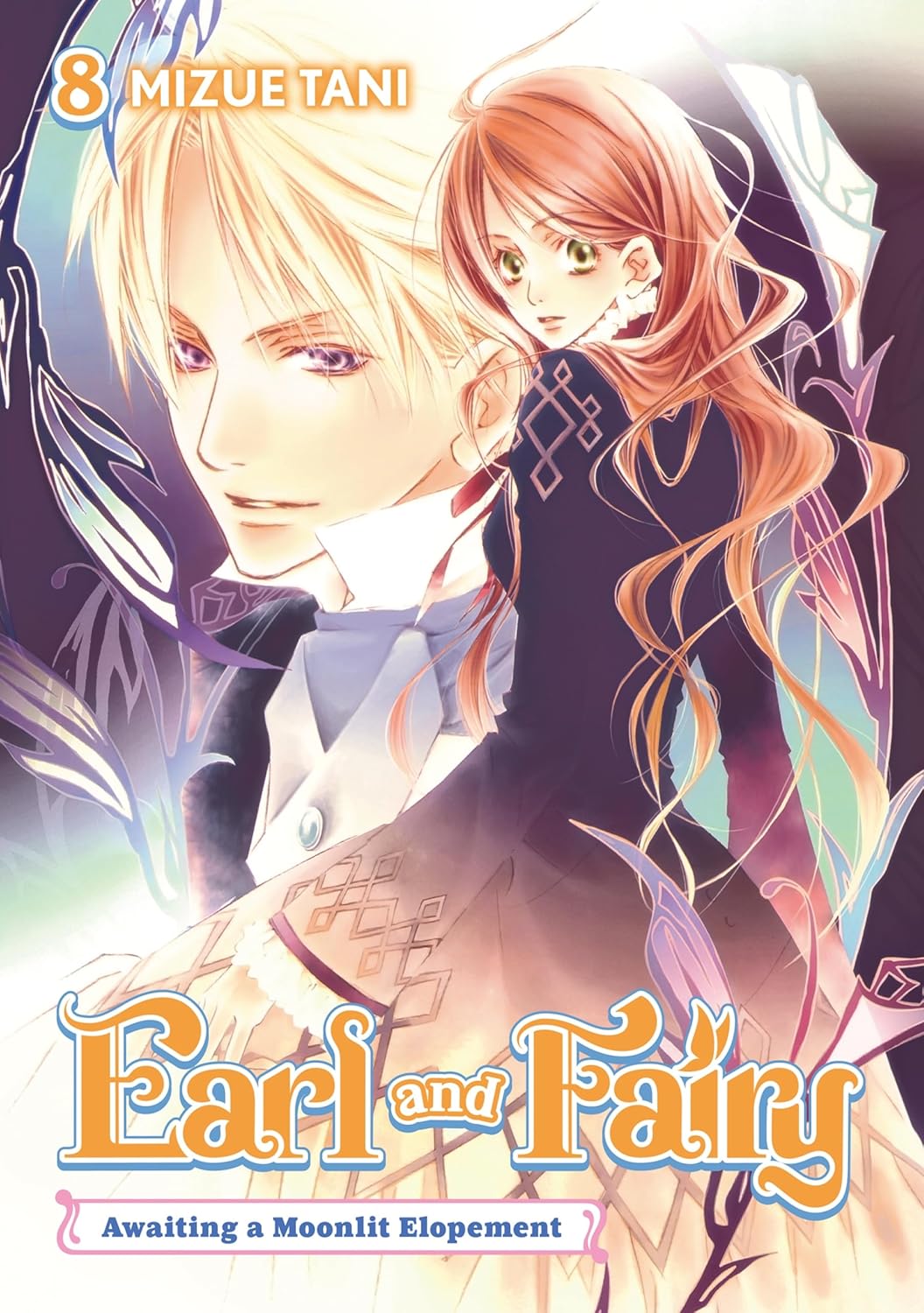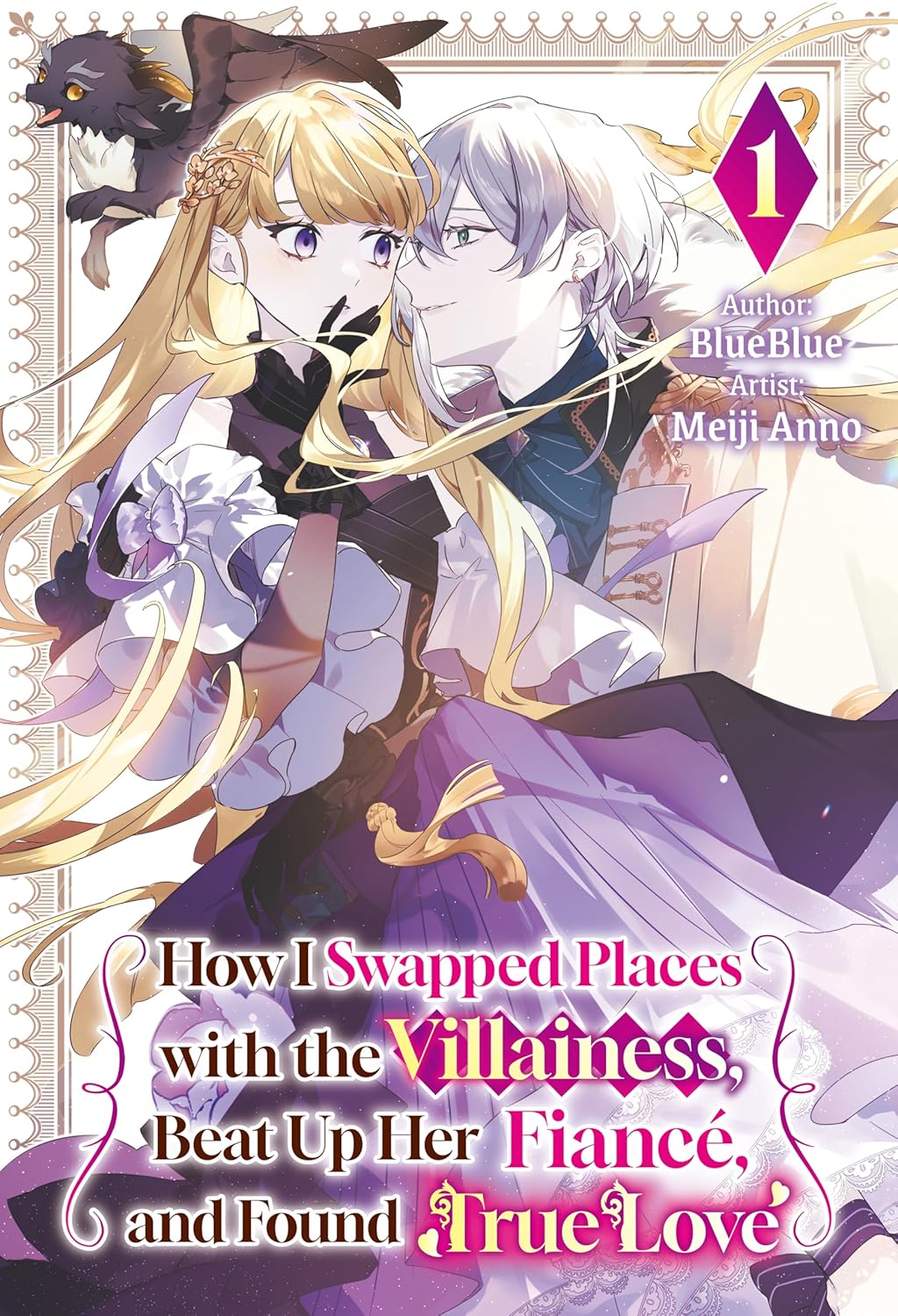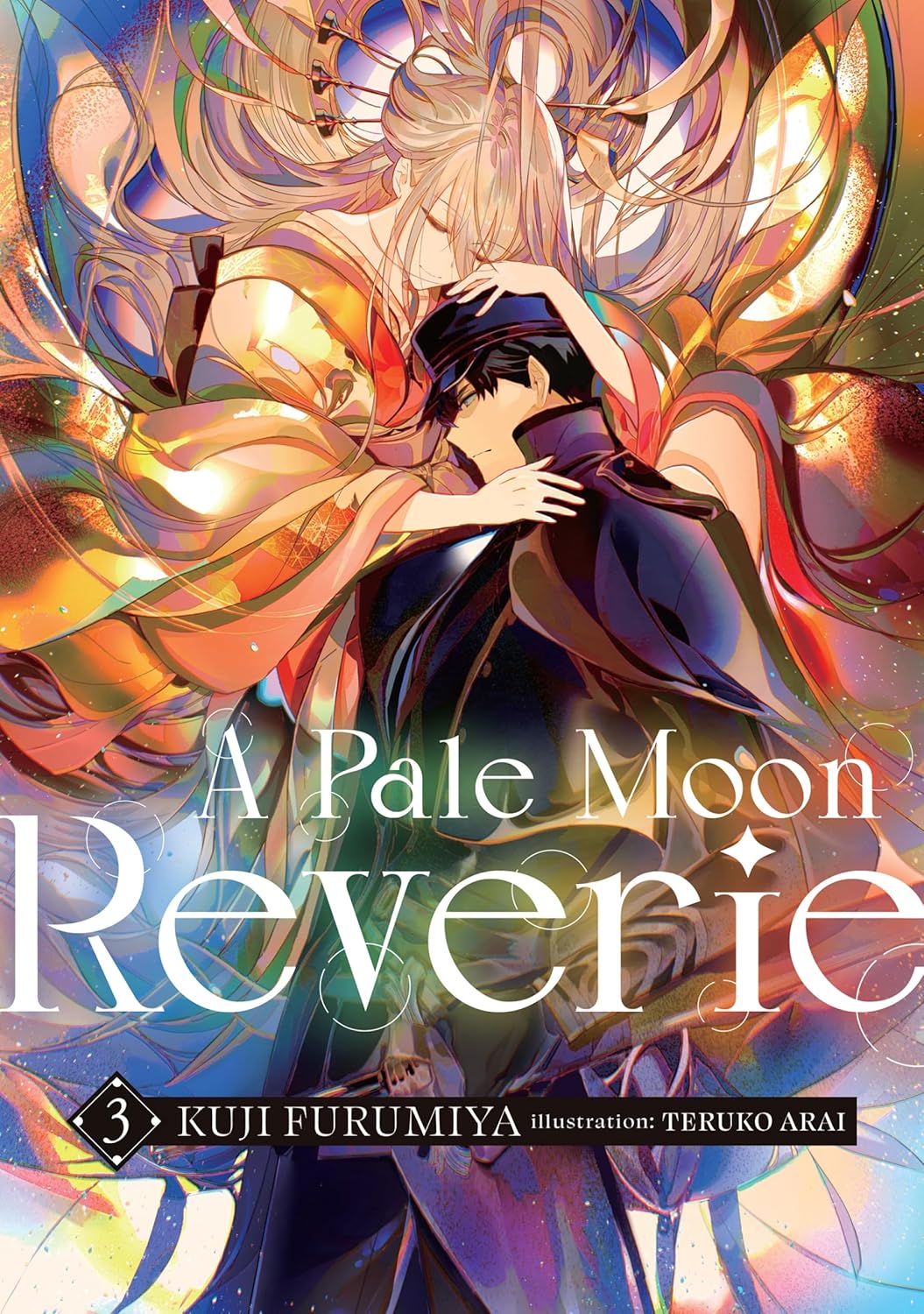By Mizue Tani and Asako Takaboshi. Released in Japan as “Hakushaku to Yōsei” by Shueisha Cobalt Bunko. Released in North America by J-Novel Heart. Translated by Alexandra Owen-Burns.
Sometimes I don’t read the blurbs before I start a volume, particularly if it’s a series I’ve been reading for a while. As a result, I came into this book not knowing that it was a short story volume. This is good and bad in some ways. It allows for less complicated narratives that better show off the two leads, and can also venture into other areas, such as Lydia’s pre-Edgar life. (All but the last short story were collected elsewhere, and the prologue was the first thing the author ever wrote for the series at all.) On the down side, without a big, action-packed and terrifying narrative to drive everything, we can sometimes be reminded a bit TOO much how irritatingly smug and possessive Edgar is, and how annoyingly naive and stubborn Lydia is. Fortunately, they’re only really at their worst in one of the short stories featured in this volume. So, of course, that particular story is the one that was used for the volume’s subtitle. Sigh.
There are five short stories in this book. 1) Before the events of the main series, a Lydia who’s just starting out meets a violinist plagued by a fairy, and makes a foolish decision that will need to be fixed by the man she’s trying to save. 2) We learn how Lydia first met Kelpie, as she helps to reunite Kelpie’s bookish brother with an elderly woman who romanced him in her youth; 3) Edgar takes Lydia to the opera, and they deal with a flower girl whose daisies are telling very accurate fortunes; 4) Lydia, having just read an exciting romance novel about a couple eloping, finds a young man being troubled by a lhiannan-shee, and decides to get involved despite Edgar, accurately, saying this is incredibly shady; 5) After the events of the 6th book, we see Edgar in London and Lydia in Scotland, both lonely at Christmastime.
The first three stories are all various shades of ‘pretty good’. The fourth annoyed me the most, as Lydia is even more naive than usual, which of course requires Edgar to be more possessive than usual, and they reinforce both their worst habits, especially as Lydia is still the sort of girl who will stubbornly jump off a cliff if Edgar tells her it’s a bad idea. That said, Lydia has heroine plot armor, unbeknownst to both of them, and therefore, of course, her naive ideas of romance and eloping turn out to be correct after all. The best story in the book is the final one, especially on Edgar’s side, as it shows him trying his best to try to fall for some other girl so he can let Lydia go and not involve her in his drama and failing miserably. The climax of the story, where fairy magic brings the two of them together for a brief period,. is the most romantic this series has gotten to date.
Next time we likely should get back to the main plot. Will we get Lydia firmly admitting her feelings with no backsies? That’s less likely. Will Edgar stop flirting with every single girl in London as part of his schemes? Even less likely.


